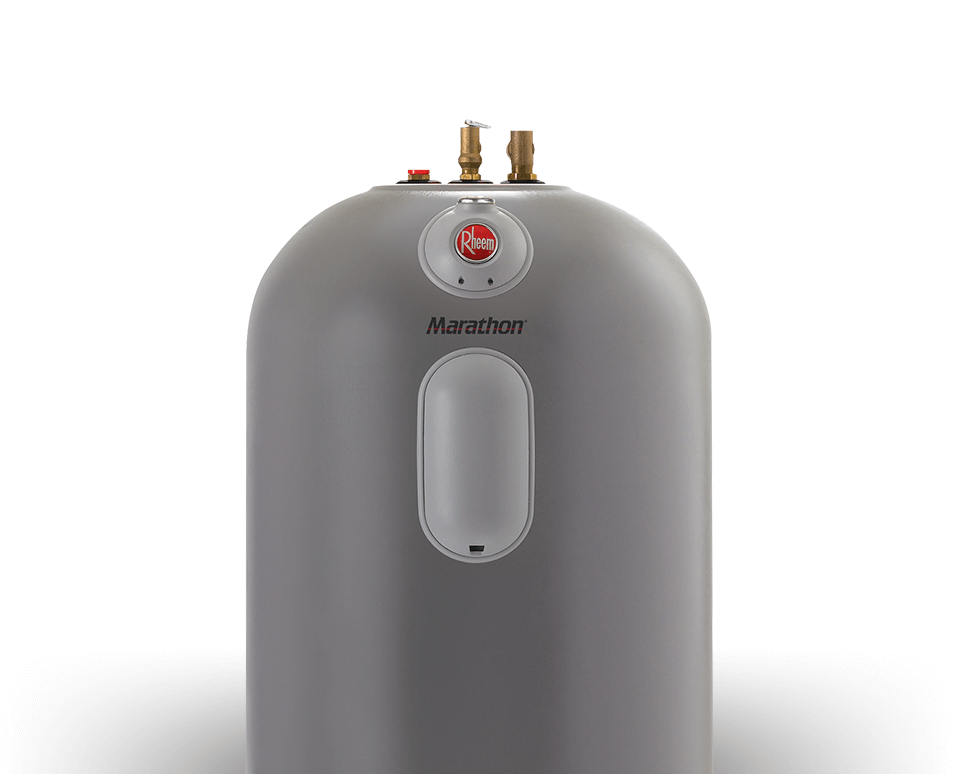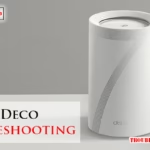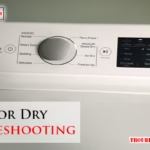Troubleshooting a Rheem Marathon water heater often involves checking the power supply and reset button. Common issues include lack of hot water, strange noises, or leaks.Water heaters are essential for comfortable living, providing hot water for showers, dishes, and laundry. Rheem Marathon models are known for their durability and energy efficiency, but like all appliances, they can encounter problems. Homeowners and technicians alike seek quick solutions to restore their hot water supply without delay.
Troubleshooting steps range from simple checks, such as ensuring the unit is powered and the circuit breaker hasn’t tripped, to more complex diagnostics that may require professional assistance. Understanding common issues and their fixes can save time and prevent the inconvenience of cold showers or a flooded utility room. Keep your Rheem Marathon water heater running smoothly with regular maintenance and timely troubleshooting.
Introduction To Rheem Marathon Water Heaters
Rheem Marathon water heaters stand out in the market. These units are known for longevity and energy efficiency. Users appreciate their ability to provide consistent hot water with minimal maintenance. Let’s explore the features that make Marathon heaters a top choice for homeowners.
The Durability And Efficiency Advantage
Marathon water heaters boast a unique fiberglass tank. This design prevents rust and corrosion. The result is a product that lasts longer than traditional steel tanks. These heaters also feature high-quality insulation. This reduces energy consumption and saves money on bills.
Common Issues And Maintenance Tips
- No hot water: Check circuit breakers and power supply.
- Inconsistent temperatures: Adjust thermostat settings.
- Leaks: Inspect valves and fittings for tightness.
Regular maintenance includes flushing the tank to remove sediment. It is also wise to test the temperature-pressure relief valve annually. This ensures the system operates safely.
No Hot Water? Start Here
Is your shower cold? Wondering why there’s no hot water? Start here to fix the problem with your Rheem Marathon Water Heater. This guide helps you get hot water back quickly.
Checking The Power Supply
First, let’s make sure your water heater has power. Follow these steps:
- Check the circuit breaker box. Look for a switch labeled “Water Heater”.
- If the switch is off, turn it on. Wait for hot water.
- If the switch was on, something else might be wrong.
Tip: Always be careful around electricity. Ask an adult for help if needed.
Resetting The High-temperature Cutoff
Sometimes, water heaters stop for safety. The high-temperature cutoff might have tripped. Here’s how to reset it:
- Find the red button. It’s on the water heater’s upper thermostat.
- Press the button. If it clicks, you’ve reset it.
- Wait a bit. See if the water gets hot.
If these steps don’t work, your Rheem Marathon Water Heater might need more help. It’s best to call a professional.
Inconsistent Water Temperatures
Dealing with inconsistent water temperatures can be frustrating. A Rheem Marathon water heater should provide steady warmth. Yet, fluctuations occur. Understanding common issues helps restore consistent heat.
Adjusting The Thermostat Settings
First, check the thermostat. It might be set incorrectly. For ideal heat, settings should match your needs.
- Locate the thermostat panel on your heater.
- Remove the panel cover carefully.
- Adjust the dial to the desired temperature.
- Wait for the water to reach the new setting.
Thermostat Malfunction Checks
A faulty thermostat might cause temperature swings. Perform these checks:
- Turn off the power to the water heater.
- Remove the thermostat cover.
- Test the thermostat with a multimeter.
- Look for signs of wear or damage.
If the thermostat fails these checks, it may need replacement. Consult your manual or a professional.

Water Leaks And Solutions
Water Leaks and Solutions with a Rheem Marathon water heater can be a hassle. But don’t worry. This guide will help you find and fix leaks quickly.
Identifying The Source Of The Leak
First, let’s pinpoint where the water’s coming from. Check the following:
- Valves – Look for drips.
- Pipes – Inspect for wet spots.
- Tank – Search for puddles.
- Connections – Examine for moisture.
Use a dry cloth to wipe down the suspected area. Check back in a few hours. If it’s wet again, you’ve found the leak.
Sealing And Repair Techniques
Once you’ve located the leak, it’s time to fix it. Here’s how:
| Leak Location | Solution |
|---|---|
| Valves | Tighten or replace. |
| Pipes | Seal joints or replace sections. |
| Tank | Contact Rheem for warranty support. |
| Connections | Secure fittings or apply plumber’s tape. |
Remember to turn off power and water before you start repairs. Always follow the manufacturer’s guidelines. If unsure, call a professional.
Discolored Water Or Bad Odor
Dealing with discolored water or a bad odor from your water heater can be annoying. These issues often indicate a need for maintenance or repair. Understanding the causes and solutions is crucial for a clean and fresh water supply. Let’s explore how to address these concerns effectively.
Cleaning The Tank
Cleaning the tank is a key step in fixing water discoloration and odors. Over time, sediment and minerals can build up at the bottom. This buildup affects water quality. A thorough cleaning can often resolve these issues. Follow these simple steps:
- Turn off the power supply to the heater.
- Connect a hose to the tank’s drain valve.
- Open the valve and let the water flow out.
- After draining, close the valve and refill the tank.
- Turn the power back on.
Anode Rod Inspection And Replacement
The anode rod plays a crucial role in preventing corrosion inside the tank. Over time, the rod can wear out, leading to water issues. Inspecting and, if necessary, replacing the anode rod can eliminate water discoloration and odors. Here’s how:
- Turn off the power and water supply.
- Locate the anode rod on the top of the tank.
- Unscrew the rod and check its condition.
- If worn out, replace it with a new one.
- Reassemble and restore power and water supply.
Regular maintenance, including cleaning the tank and inspecting the anode rod, ensures clean and odor-free water. Addressing these issues promptly can also extend the life of your Rheem Marathon water heater.

Strange Noises From The Heater
Is your Rheem Marathon water heater singing a tune of its own? Unexpected noises from your water heater can be alarming. They often signal the need for maintenance or repair. Understanding these sounds is the first step to restoring peace and ensuring your water heater’s health.
Deciphering The Types Of Noises
Water heaters can make various noises, each indicating a different issue. It’s important to identify these to take the right action. Popping or cracking sounds often suggest mineral buildup. Humming could mean loose elements. Whistling might imply valve issues.
- Popping: Mineral deposits react to heating.
- Humming: Elements may need tightening.
- Whistling: Check for valve problems.
Simple Fixes For Common Sounds
Some noises can be fixed with simple adjustments. For a humming element, tightening it can help. Flushing the tank might clear mineral buildup. Replacing a valve can stop whistling sounds.
| Noise Type | Possible Cause | Simple Fix |
|---|---|---|
| Popping | Mineral buildup | Flush the tank |
| Humming | Loose element | Tighten the element |
| Whistling | Valve issue | Replace or adjust valve |
Low Water Pressure Fixes
Low water pressure can be a sign of trouble with your Rheem Marathon Water Heater. The following troubleshooting tips will help restore the proper water flow. Each fix is crucial for a fully functioning system.
Inspecting For Clogs
Clogs can seriously hinder water pressure. Start by checking faucets and showerheads. Look for mineral deposits that block water flow. Use a vinegar solution to dissolve these build-ups.
- Remove aerators and rinse them thoroughly.
- Soak parts in vinegar for a few hours.
- Use a small brush to remove leftover deposits.
Check the pipes for any visible clogs or obstructions. If pipes are old or corroded, consider consulting a professional.
Pressure Relief Valve Assessment
The pressure relief valve ensures safe operation. A faulty valve affects water pressure. To check the valve:
- Turn off the heater and water supply.
- Place a bucket under the valve.
- Lift the valve’s lever carefully.
- Watch for a steady water flow.
If water does not flow or drips, replace the valve. Ensure the new valve matches the heater’s specifications.
Regular maintenance prevents low water pressure issues. Keep your Rheem Marathon Water Heater in top shape for a steady and reliable hot water supply.
Preventative Maintenance For Longevity
Maintaining your Rheem Marathon water heater is key to its longevity. Regular care prevents common issues. Learn the best practices in this guide.
Regular Inspection Schedule
Set a routine to check your water heater. This prevents sudden failures. Inspect every six months for best results.
- Check for leaks or corrosion.
- Examine temperature settings.
- Ensure the pressure relief valve works.
Replacing Parts Before Failure
Replace parts as they show wear, not after they break. This saves time and money. Focus on these components:
| Part | Signs of Wear | Replacement Frequency |
|---|---|---|
| Anode Rod | Corrosion or heavy wear | Every 3-5 years |
| Heating Elements | Scale buildup or failure to heat | As needed |
| Thermostats | Inaccurate temperature control | As needed |
When To Call A Professional
Water heaters are crucial for comfort in any home. The Rheem Marathon series is known for reliability. Yet, like any appliance, issues may arise. Sometimes, a professional is needed to solve these problems.
Identifying Complex Issues
Some water heater troubles are beyond DIY fixes. Look for these signs:
- No hot water despite correct settings.
- Leakage around the unit.
- Persistent noises during operation.
- Repeated tripping of circuit breakers.
- Water temperature fluctuations.
These symptoms suggest deeper problems. A skilled technician should assess them.
Finding A Qualified Technician
Selecting the right expert is key. Follow these steps:
- Search for certified Rheem service providers.
- Check reviews and ratings online.
- Confirm licensing and insurance.
- Ask about experience with Marathon models.
Ensure the technician has the skills for your water heater model. Proper service extends its life.
Conclusion: Ensuring Reliable Operation
Maintaining a Rheem Marathon Water Heater ensures it runs smoothly. This section helps homeowners keep their water heaters in top shape. Let’s dive into key practices for trouble-free operation.
Key Takeaways For Troubleshooting
- Identify common issues like no hot water or leaks.
- Reset the thermostat if the water is too hot or cold.
- Check electrical connections for power problems.
- For unclear issues, consult the manual or a professional.
The Importance Of Regular Maintenance
Regular checks keep your water heater running well. Here’s how:
- Drain and flush the tank yearly to remove sediment.
- Inspect the anode rod every 3 years, replace if needed.
- Test the temperature-pressure relief valve for safety.
- Keep the area around the heater clear for airflow and safety.
Following these steps ensures your Rheem Marathon Water Heater operates reliably. Regular maintenance prevents common problems. This saves time and money in the long run. Keep your water heater in good condition with these practices.
Frequently Asked Questions
Why Is My Rheem Marathon Not Heating?
The Rheem Marathon may not heat due to a tripped circuit breaker, faulty heating elements, or a malfunctioning thermostat. Check and reset the breaker, or replace defective parts.
How To Reset Rheem Marathon Water Heater?
Locate the reset button on the thermostat. Press it firmly until you hear a click. If the heater doesn’t reset, the thermostat may need replacement.
What Causes Rheem Marathon Leaks?
Leaks in a Rheem Marathon can be caused by loose connections, tank corrosion, or a faulty temperature and pressure relief valve. Tighten connections or replace damaged components as needed.
Can I Replace Marathon Water Heater Elements?
Yes, you can replace Marathon water heater elements. Ensure the power is off before removing the cover plate, disconnecting, and replacing the faulty elements.
Rheem Marathon Making Noise: What To Do?
Noise from a Rheem Marathon usually indicates sediment build-up. Flush the tank to remove the sediment. If noise persists, inspect for faulty elements or scale on heating elements.
Conclusion
Tackling issues with your Rheem Marathon water heater doesn’t have to be a daunting task. Armed with the right knowledge and tips, you can swiftly diagnose and fix common problems. Remember, regular maintenance is key to ensuring your unit runs efficiently for years.
Embrace these troubleshooting steps and enjoy continuous hot water without the hassle.






